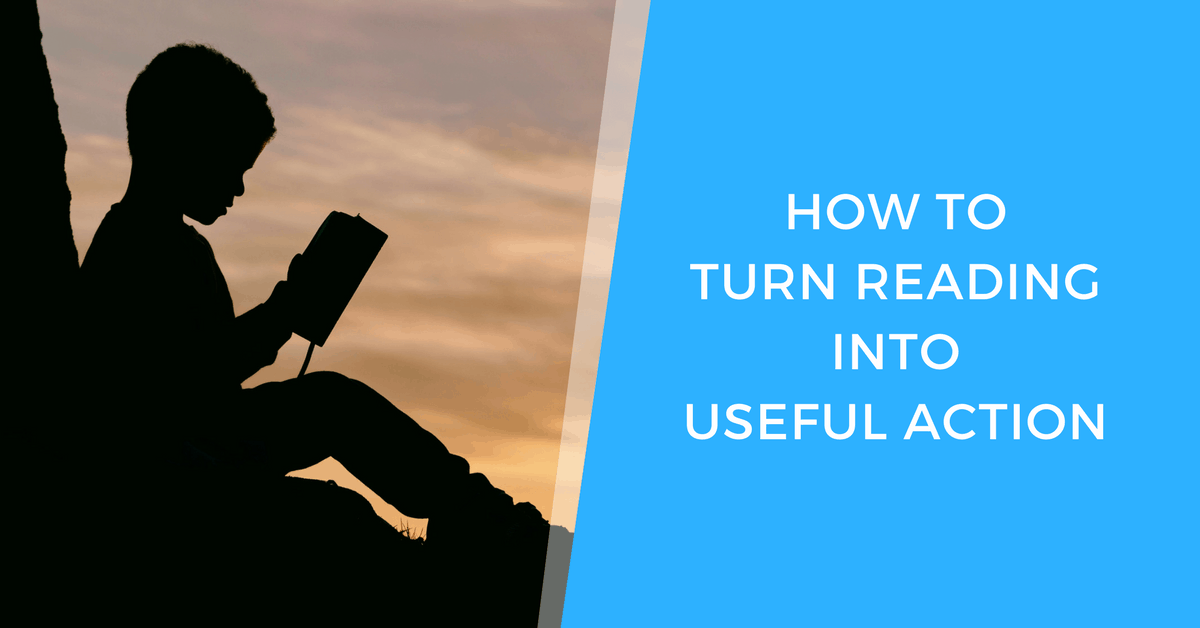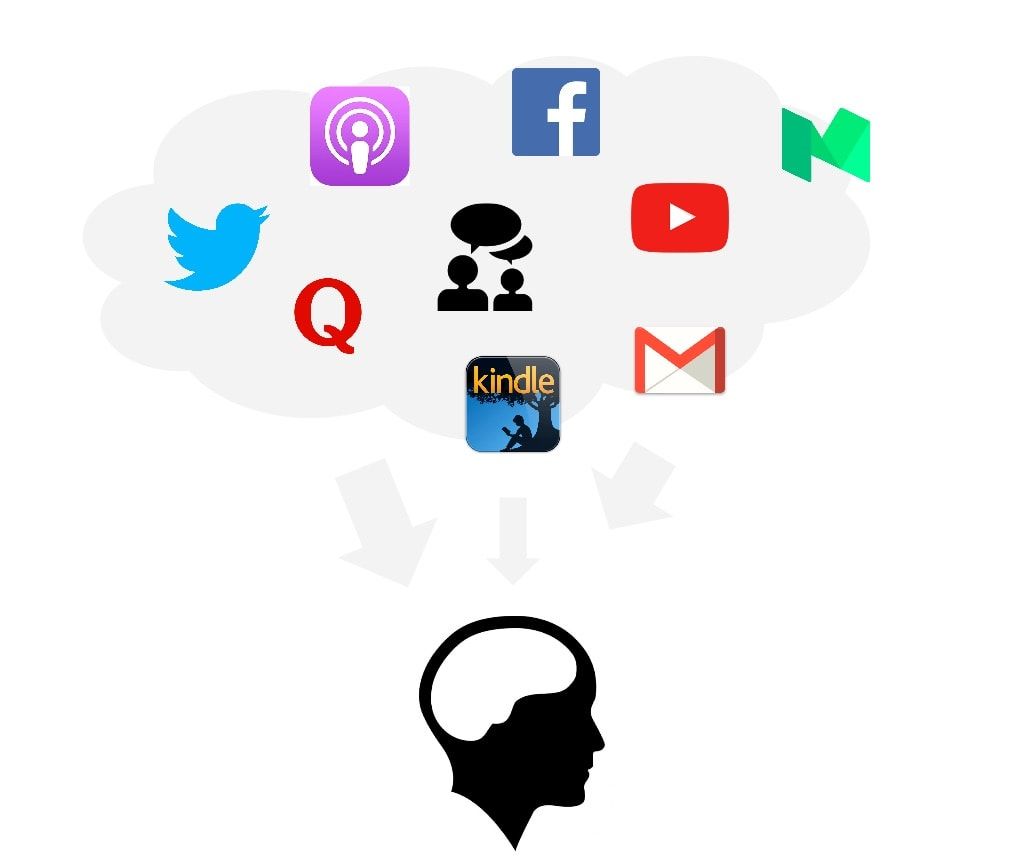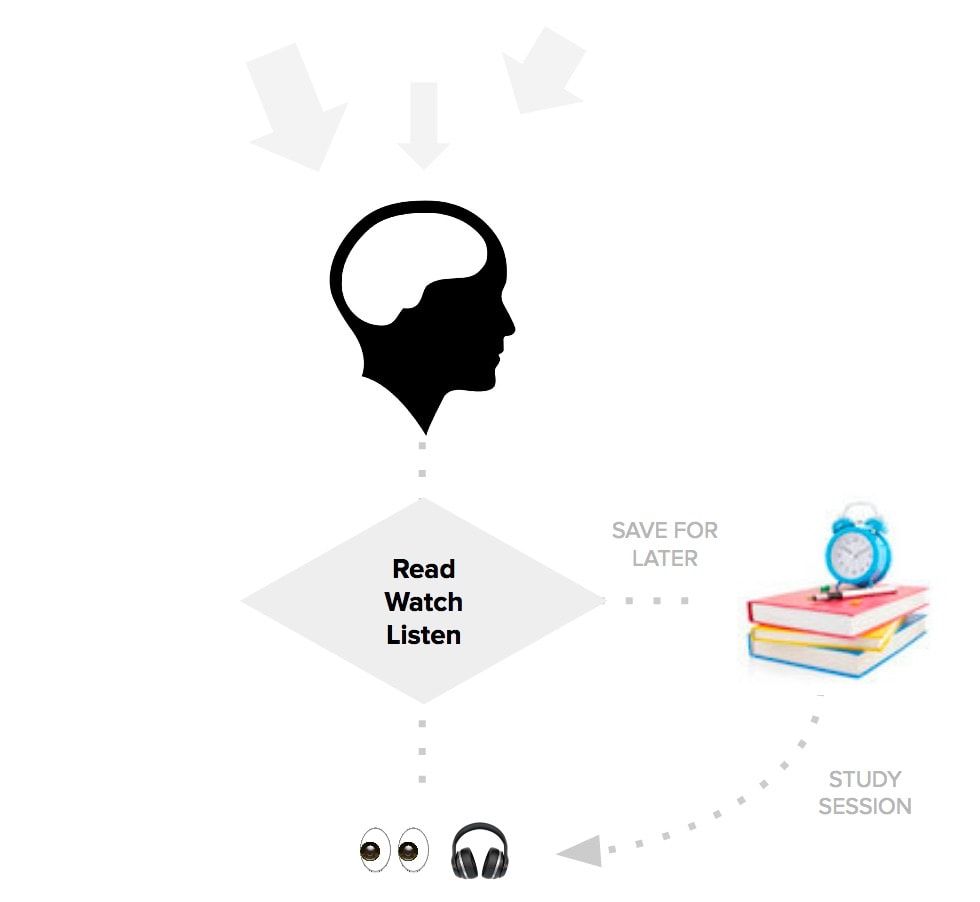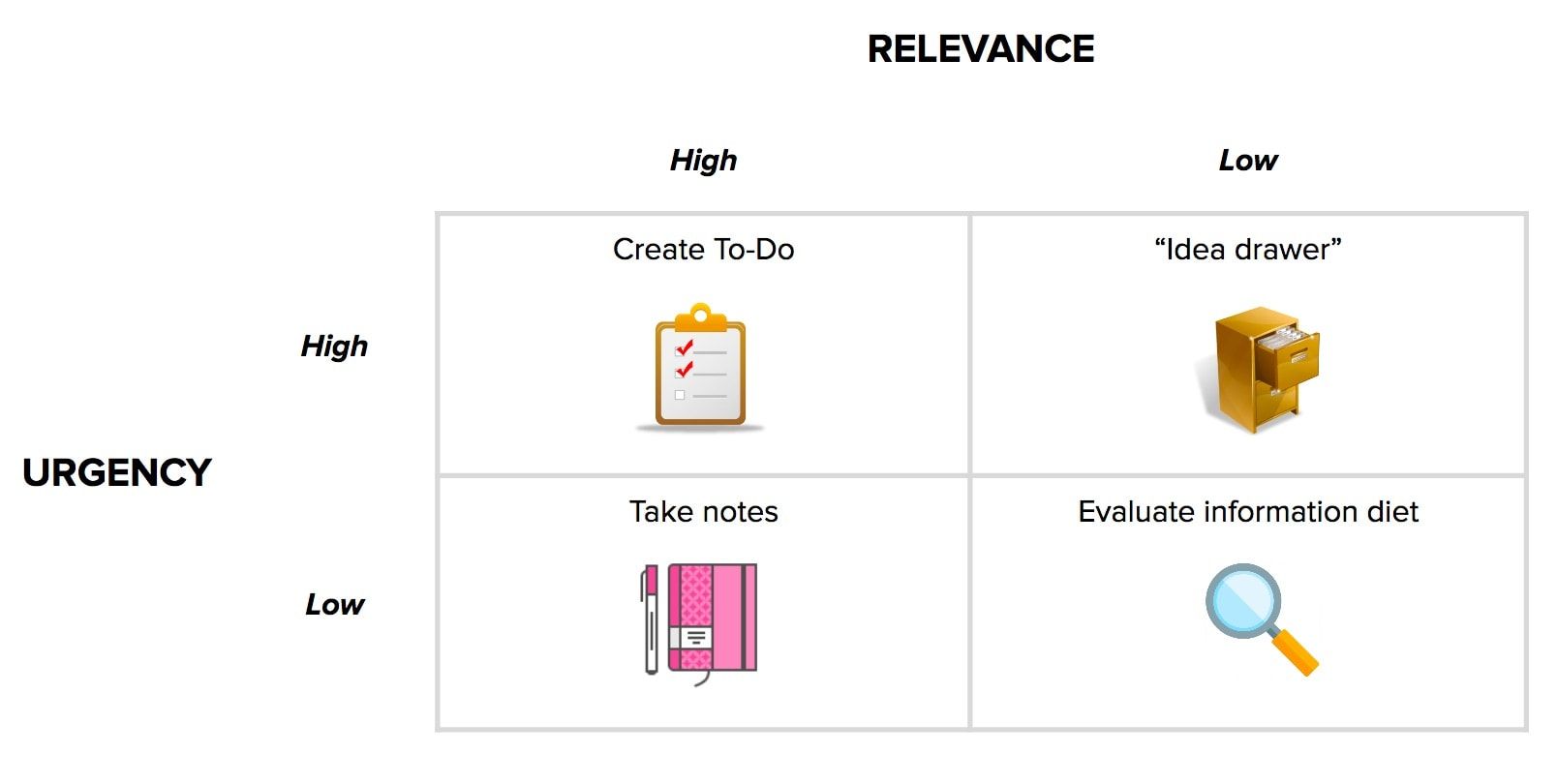How To Effectively Take Notes On Books, Blogs and Podcasts

If you’re here, it’s because you’re a little like me.
You read a lot. You listen to podcasts. You watch webinars. You subscribe to email newsletters. You attend events. You (try to) take notes on all these things.
And maybe also like me, you’ve also fallen into the trap of consuming all these things … but not really doing anything about them, or feeling like you’re stuck in a rut because you’re not learning anything new.
The notes you were taking were not effective or productive.
I hate that feeling. So I came up with a framework to process all the information I come across. That way I can make my work reading / podcast listening / note taking as useful and actionable as possible.
It’s made up of three parts — managing Exposure to new ideas, creating a system for Processing those ideas, then deciding how to put those ideas into Action.
Step 1: Exposure to new ideas

How do we learn new things?
By being exposed to new ideas.
So, this first step is represents our information diet. And just like our actual food diet, this should be managed in order to produce the outcome that we want.
Personally, I found that whenever I didn’t have control of my information diet, I would feel like crap and feel uninspired.
That was a sign that I was exposing myself to too much mental “junk food.”
The key to this first step is control and balance. It’s important to make sure you consciously curate what you allow into your head.
Imagine mindless Facebook newsfeed scrolling as french fries; imagine reading something useful for work as salad. It’s okay to go for the french fries every now and then. Just don’t let it become your entire diet.
Step 2: Processing information
This step is about how you process all the information from the previous step.

How many of you have a folder full of unread ebooks and PDFs? Bookmarks that you never visit? And the worst: info courses that you’ve bought but never log into?
If that sounds familiar, then something in your Processing step is broken.
Here are a few principles that have helped me make sure this step stays healthy.
- Create a “save for later” system. This way, when you come across something you’d like to consume but don’t have the time, you can save it somewhere. This can be easily set up with email, Pocket or Instapaper. You just have to decide how you’re going to do it.
- Create a “study session”: dedicated, flow-state time for learning. For example, I block out Friday mornings as distraction-free learning time when I can go through my backlog, go deep on something, or re-read things I want to internalize faster.
Step 3: taking ACTION
Now it’s time to turn that reading into useful action.
What I do at this step is dependent on how Relevant the information is to my current problems, and how Urgent it is that I do something about it.

Here’s a bit more detail about what each of these means:
- Create a To-Do: I’ve just uncovered a blind spot, and I need to make a change somewhere ASAP. For me, these are either realizing stupid mistakes (e.g. “I’ve been using this one part of Google Analytics all wrong”) or brilliant ideas (e.g. some new tactic or technique that few people are taking advantage of)
- Take notes: Interesting info that I will probably need later, so I type up notes to help internalize it for now. This is like those times in a video game where you stumble on a closed-off area that doesn’t make any sense, but you know you’re going to play later on.
- “Idea drawer”: Not relevant to my work, but interesting to note that it exists. For me, this would be like learning that some sector of the economy is rapidly growing, or reading about different industries.
- Evaluate information diet: If too many things I’m reading are of low urgency and low relevance — then I’m wasting my time, and it triggers a look the previous steps in the system.
Diagnosing problems
Breaking down my work reading into 3 distinct steps like this allowed me to diagnose problems more easily.
The reason I read for work is to get new ideas that impact what I’m doing. If I’m not generating a healthy amount of to-dos in the Action step, that tells me that something’s broken in one of the prior steps.
Similarly, if I don’t have enough interesting content for the Processing step, that tells me something is broken with the Exposure step; something about the composition of my information diet has to change.
+ + +
I’m always looking to improve my own processes. If you’ve got your own system — let me know!